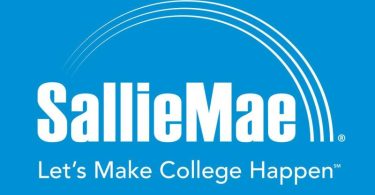Are you considering the possibility of working while pursuing your studies in Canada? Perhaps your partner is also eager to gain employment during your time in Canada. The good news is, both of you can work while studying in Canada. This opportunity not only allows you to acquire practical work skills but also facilitates network development. Moreover, it could potentially pave the way for a future in Canada after graduation.
Table of Contents
How To Work While Studying
As an international student, you may be eligible to work while studying in Canada. However, it’s important to understand the specific conditions for working on and off campus. “On Campus” refers to all the facilities within the school campus. You can find detailed information about working on campus from Immigration, Refugee, and Citizenship Canada.
When we mean working “Off Campus,” we talk about the outside part of the school, which is the town or city. You can get employed off campus without a work permit if you satisfy all the conditions mentioned below:
- You are studying full-time at a designated learning institution.
- You are registered in a post-secondary education, professional or vocational internship course, or a secondary-level vocational internship for Quebec only.
- Your course of study is at least six months or results in a degree, diploma, or certificate.
- You have begun your studies.
- You have a Social Insurance Number (SIN).
Commonly, international students can get employed off-campus for up to 20 hours weekly:
- During general school sessions or while studying part-time for an intensive course with no intended holidays.
- If your studies are part-time since you are concluding the final session of your course.
- If you are a graduate student who has concluded the programs needed for your course,
Commonly, a student can get employed for full-time:
If you enjoy this article, don't miss out on the valuable insights and information available in our other related posts:
- 15 Highest Paying Jobs In Marketing And Advertising In Canada
- Step-By-Step Guide To Relocating To Canada As A Nurse
- Guide to Landing Barber Jobs in Canada with Visa Sponsorship
- Canadian Visa Sponsorship For Barber Jobs
- Official Financial Sponsorship for Student Visa Application: Everything You Need to Know
- During the periods of official school holidays, which may be the winter and summer holidays or spring holidays.
- After you conclude your studies, you apply for a non-student work permit.
Co-op Arrangements
A co-op arrangement, also known as a co-op course, involves working as part of your research course. This can be on or off campus. For example, you might be enrolled in a co-op course program in environmental studies, which is different from a regular program in ecological research or additional annual work in your field of study. A co-op course is an excellent opportunity to gain hands-on experience in a Canadian work environment and develop skills under the guidance of industry professionals.
When you become part of the Co-op course at an institution, you can make an application for a co-op work permit if:
- You have an authentic study permit.
- Working is joined into your course program in Canada.
- You have a letter from your assigned institution that verifies all students in your course are required to complete work placements to acquire their certificate.
- Your co-op or training is 50 percent or lower of the entire course of study.
You are not qualified for a co-op work permit, and you will be required to acquire an authentic work permit if you are a student of:
- English or French to be their second language
- General interest programs
- Programs to get you ready for another course of study.
Training
Training or internships offer on-the-job internships. When you are an apprentice, a person in the place of work oversees you. Being employed as a trainee gives you understanding and experience to support your success in a trade or vocation.
The work permit required for training is the same as that for co-op students.





